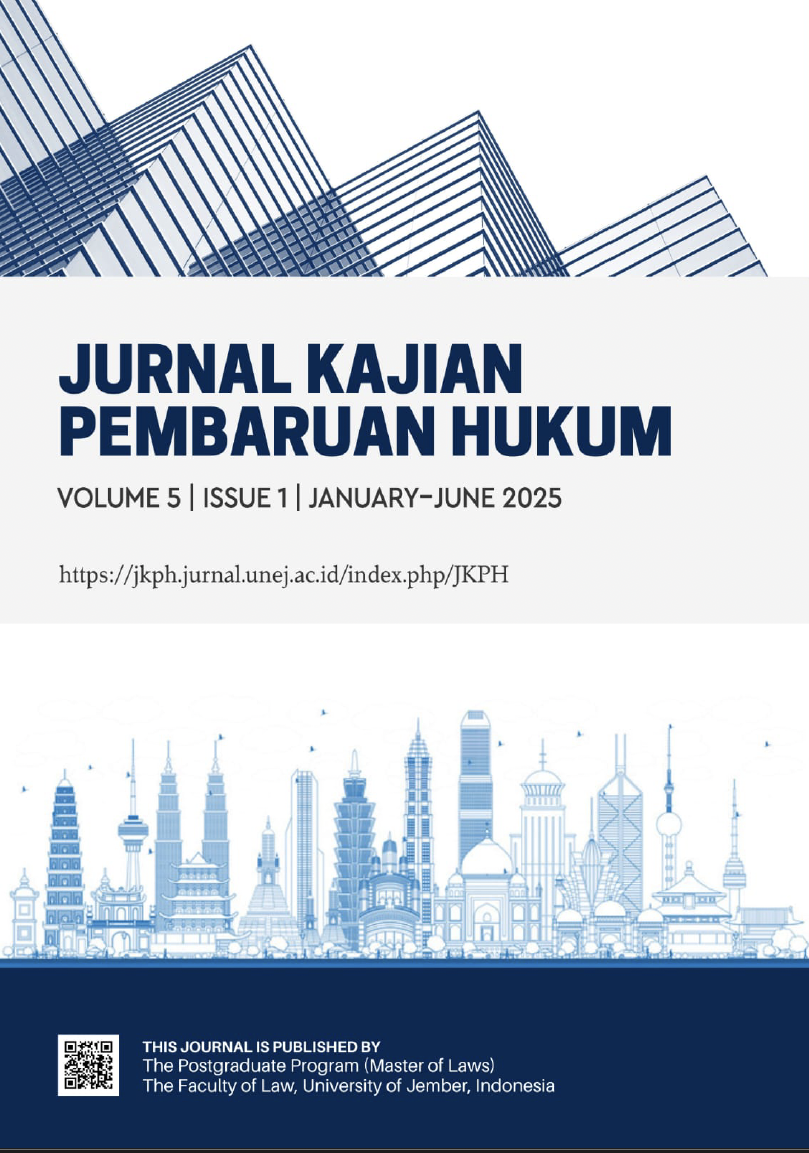Reconstructing Population Law for Transsexual Status Change Based on Humanitarian Values
Abstract
Gender change regulations in Indonesia present complex legal and social challenges that require thorough examination to ensure protection and recognition of individual rights. This study aims to describe and analyse the ratio legis of the legal provisions regarding gender change from the perspective of Indonesian legislation, as well as to identify and analyse the relevance of these provisions to Werner Menski’s legal pluralism triangle concept. The research employs normative legal methods using statutory, philosophical, and conceptual approaches. Data collection is conducted through literature studies on laws and regulations, legal literature, and court decisions related to gender change. The results indicate that the ratio legis of gender change provisions reflects the state’s effort to protect and recognise the personal and legal status of every citizen. However, these provisions have not yet shown strong relevance to Werner Menski’s legal pluralism triangle concept, particularly regarding the legal protection of transgender individuals whose petitions for gender status changes have been rejected by the courts. The conclusion emphasises the need to adjust national legal norms to better respond to the complex moral, social, and cultural issues arising in a globalised society.
Downloads
Downloads
Published
Issue
Section
License
Copyright (c) 2025 Jurnal Kajian Pembaruan Hukum

This work is licensed under a Creative Commons Attribution-ShareAlike 4.0 International License.










